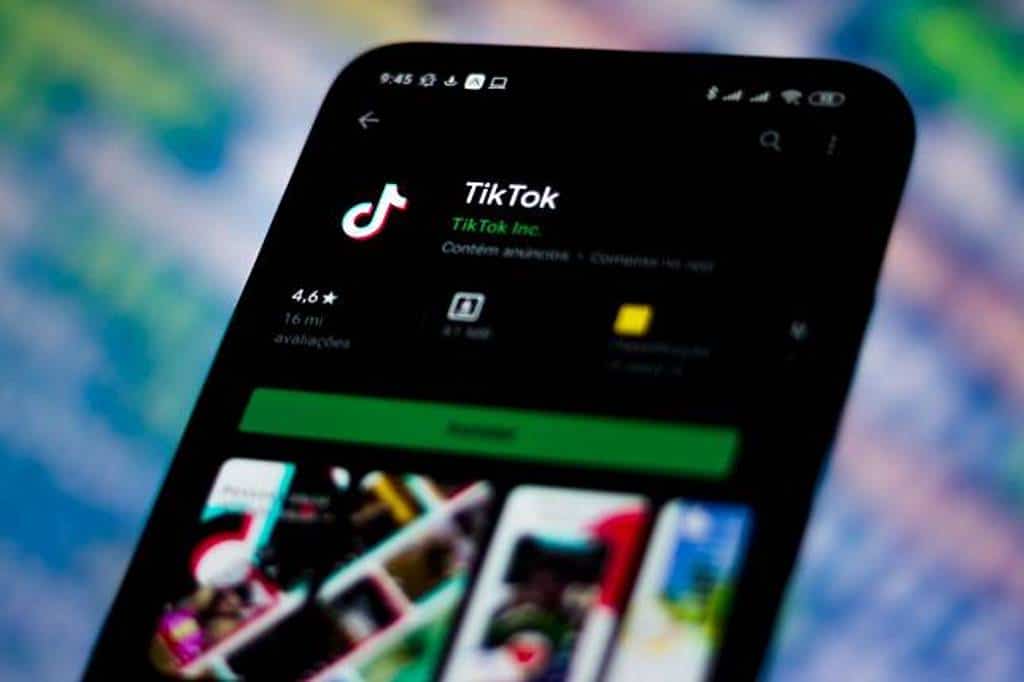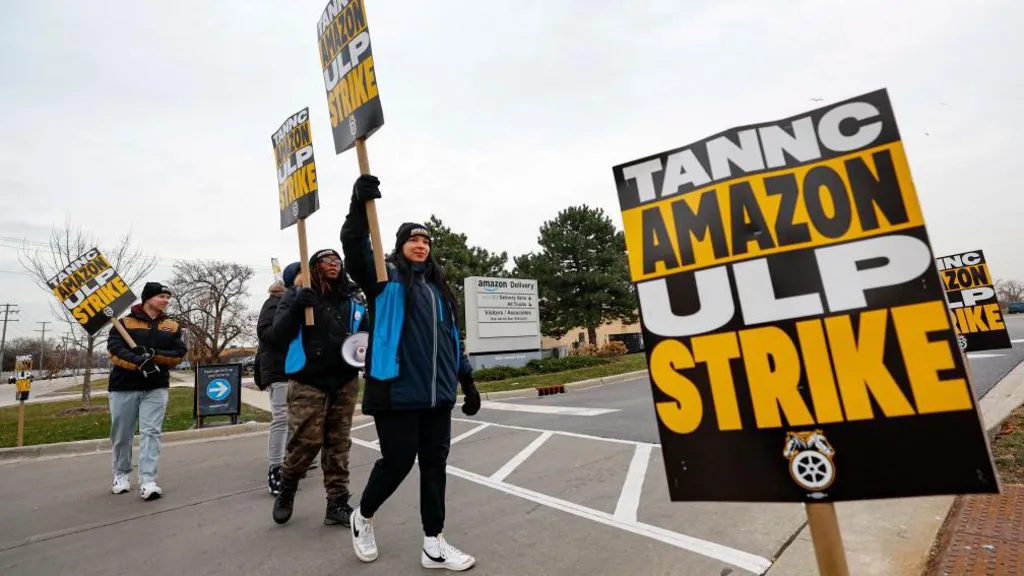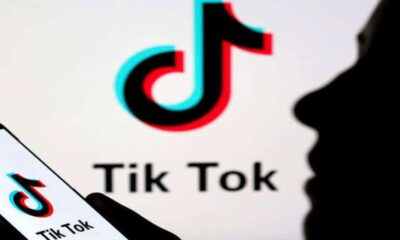Business
The TikTok Law Kicks Off A New Showdown Between Beijing And Washington. What’s Coming Next?

WASHINGTON – TikTok is preparing to engage in a legal battle against a U.S. legislation that would compel the social media platform to sever its connections with its China-based parent company. Chinese authorities likely support this action, as the intense rivalry between the United States and China jeopardizes the future of a highly popular online platform for young Americans to connect.
Beijing has indicated that TikTok should resist what it perceives as a “robbers” move by U.S. politicians who aim to seize all the valuable assets possessed by others. If a judicial challenge is unsuccessful, experts believe that Chinese authorities are unlikely to permit a sale, as this may be interpreted as yielding to Washington.
AP – VOR News Image
The TikTok Law Kicks Off A New Showdown Between Beijing And Washington. What’s Coming Next?
Alex Capri, a senior lecturer at the National University of Singapore and research fellow at Hinrich Foundation, suggests that Beijing is concerned about the negative implications that the U.S. action against the popular short-form video platform could have, as it may establish an undesirable precedent. “If Beijing surrenders to the United States, what will be the ultimate outcome?”
Parent firm ByteDance issued its first formal comment on the new rule in a post on Toutiao, a Chinese news app owned by the company. The statement explicitly mentioned that ByteDance has no intention of selling TikTok. In response to media reports, the firm based in Beijing addressed the speculation around exploring potential possibilities for selling TikTok’s U.S. business.
The legislation that U.S. President Joe Biden signed this week may allow Washington to extend its reach to target other China-related apps, such as the well-known e-commerce platform Temu, according to Hu Xijin, a former editor-in-chief for the party-run newspaper Global Times. Furthermore, it could encourage U.S. allies to take similar actions.
According to Hu, a political commentator, TikTok, with its 170 million American users, should display more courage and determination by refusing to give up and fighting until the very end.
TikTok has pledged to contest the recently enacted U.S. legislation that mandates ByteDance to sell off its ownership interests within a one-year timeframe in order to prevent a ban. The corporation has described the regulation as a violation of the freedom of expression of its users, the majority of whom utilize the program for amusement purposes.
The company expressed confidence in its position, stating that it firmly thinks the facts and the law support its case, and they are confident in its ultimate victory.
The dispute around TikTok has escalated the tensions between the United States and China, as both countries have pledged to safeguard their economic and national security concerns. U.S. legislators are apprehensive about the Chinese ownership of the application, as it may potentially enable Beijing to exercise undesirable influence on the United States, particularly on the impressionable minds of young individuals.
Washington has achieved a series of triumphs in reducing the influence of Chinese corporations through bans, export controls, and forced divestitures. This has led to protests from Beijing, who believe that the U.S. is intentionally trying to suppress China’s economic growth through coercion.
AP – VOR News Image
The TikTok Law Kicks Off A New Showdown Between Beijing And Washington. What’s Coming Next?
The United States has previously compelled Chinese corporations to sell off their assets. For instance, in 2020, Beijing Kunlun, a Chinese mobile video game company, agreed to divest itself of the gay dating app Grindr following a directive from the federal government. However, TikTok, which was developed by a Chinese corporation exclusively for the international market, serves as a prominent example of China’s technological prowess on a worldwide scale. Beijing is determined not to relinquish control over this influential platform.
Gabriel Wildau, managing director of Teneo, a consultancy and advisory firm based in New York, stated that national dignity is at risk and may be prioritized over the financial interests of ByteDance investors, especially global investors with a 60% stake in the company.
The corporation is anticipated to mount a legal battle that will heavily rely on First Amendment considerations and has the potential to be protracted for several years. Analysts assert that Beijing is relying on a favorable legal outcome.
The course of action to be taken if TikTok fails to succeed is currently under discussion with the Chinese authorities, according to Dominic Chiu, an analyst with Eurasia Group. Chiu stated that President Xi Jinping, who has the authority to approve or disallow the transaction, has likely yet to make the definitive choice.
Fortunately for Xi, Beijing does not face any immediate pressure to decide, according to Sun Yun, the director of the China program at the Stimson Center in Washington. “There is a possibility for numerous alterations,” she stated.
If lawmakers’ desire for a sale of TikTok is fulfilled, the procedure is expected to be complicated for the company. TikTok would need to separate its activities in the United States from all other aspects of its business.
Firstly, the cost of acquiring TikTok’s U.S. operations, although undisclosed, is anticipated to be substantial enough to significantly restrict the number of potential investors and companies capable of affording it. Several investors, including former Treasury Secretary Steve Mnuchin, have already positioned themselves as potential purchasers of a U.S. iteration of TikTok. According to market tracker Pitchbook, ByteDance, a privately held company, has a valuation of $220 billion.
There is now a lack of clarity on the fate of the TikTok algorithm, which is the secret formula responsible for delivering personalized short videos to users depending on their preferences. This algorithm has played a significant role in establishing TikTok as a dominant force in popular culture.
ByteDance would be prohibited from having control over the algorithm of a U.S. subsidiary of TikTok. According to many experts, Chinese authorities are likely to prohibit the sale of the technology that appears in people’s TikTok feeds, based on the amended export regulations of 2020. After the federal courts blocked former President Donald Trump’s attempt to outlaw TikTok through an executive order, this revision took place.
AP- VOR News Image
The TikTok Law Kicks Off A New Showdown Between Beijing And Washington. What’s Coming Next?
According to certain individuals, including Mnuchin, it is necessary to reconstruct TikTok in the United States by employing novel technology. However, it is uncertain how this will manifest or how effectively it will replicate the kind of video suggestions that viewers have become accustomed to.
According to Robin Burke, a professor of information science at the University of Colorado Boulder, certain elements of the algorithm might potentially be duplicated by individuals within the company. However, he also observed that TikTok has certain areas where it outperforms its competition, making it difficult to replicate.
“TikTok possesses extensive experience and a wealth of data,” Burke stated. “I believe it is improbable for a U.S. company, without inheriting the technology from its parent company, to construct something of equal caliber.” Definitely not immediately.
SOURCE – (AP)
Business
Sonic the Hedgehog Dominates Christmas Wish Lists

Sonic the Hedgehog is dominating Christmas wish lists this year. The lovable blue hedgehog is back in the spotlight, from sonic the hedgehog toys and games to sonic the hedgehog coloring pages and movie hype.
Sonic-themed holiday merchandise is on fire, from quirky sweaters to action figures flying off shelves. Sonic the Hedgehog Christmas outfits for kids are selling out fast, making them a go-to gift option for festive fun.
Retailers have been quick to recognize Sonic’s holiday appeal. Special promotions and exclusive items, like the Sonic holiday t-shirts, are everywhere.
Everyone’s stocking up on Sonic merchandise, from big-box stores to boutique retailers.
Online shopping platforms are seeing a surge in searches for Sonic items. Whether it’s Sonic Christmas-themed tops or Sonic the Hedgehog coloring pages, Sonic the Hedgehog toys or Sonic and the Hedgehog 3, the demand is skyrocketing.
Retailers who tap into this trend are sure to see strong holiday sales.
Sonic has been around since the early 90s, but his popularity never wanes. With the release of Sonic 3, fans are more excited than ever.
Sonic the Hedgehog 4
Meanwhile, Paramount Pictures is preparing “Sonic the Hedgehog 4,” with the newest addition in the family-friendly genre set for a spring 2027 release.
The announcement comes as “Sonic 3” opens in theatres on Friday, estimated to gross $55 million to $60 million from 3,800 North American locations.
The sequel is shaping up to be a good holiday season blockbuster for Paramount, which explains the desire in future “Sonic” adventures. On the international front, the film will be released on Christmas Day in 52 markets.
On Rotten Tomatoes, critics gave “Sonic 3” an outstanding 87% fresh score.
The first two films grossed a total of $725.2 million at the global box office and generated over $180 million in global consumer expenditure through home entertainment rentals and digital purchases.
They also inspired a spinoff Paramount+ series, “Knuckles,” which premiered earlier this year.
Related News:
Man Creates Candy Cane Car to Spread Christmas Cheer
Business
Amazon Strike Called By Teamsters Union 10,000 Walkout

An Amazon strike has hit facilities in the United States in an effort by the Teamsters union to pressure the corporation for a labour agreement during a peak shopping season.
The Teamsters union told the Associated Press that Amazon delivery drivers at seven facilities in the United States walked off the job on Thursday after the firm failed to discuss a labour contract.
According to the union, Amazon employees in Teamsters union jackets were protesting at “hundreds” of additional Amazon facilities, which the union billed as the “largest strike” in US history involving the company.
The corporation, which employs over 800,000 people in its US delivery network, stated that its services will be unaffected.
It was unclear how many people, including members of Germany’s United Services Union, participated in Thursday’s demonstration. The Teamsters union reported that thousands of Amazon employees were implicated in the United States.
Amazon Strike at 10 Locations
Overall, the group claims to represent “nearly 10,000” Amazon strikers, having signed up thousands of people at roughly ten locations across the country, many of whom have joined in recent months.
The organization has claimed recognition from Amazon going on strike, claiming the firm illegally neglected its obligation to bargain collectively over salary and working conditions.
The Teamsters is a long-standing US union with nearly one million members. It is well-known for securing lucrative contracts for its members at companies like delivery behemoth UPS.
Most of the Teamsters’ Amazon campaigns have concerned drivers working for third-party delivery companies that partner with the tech behemoth.
Amazon denies that it is liable as an employer in those circumstances, which is a point of legal contention. In at least one case, labour officials have taken a preliminary stance in favour of the union.
Stalled Contract Negotiations
Amazon employees at a major warehouse on Staten Island in New York have also chosen to join the Teamsters. Their warehouse is the only Amazon facility in the United States where labour officials have formally recognized a union win.
However, the Amazon strike is because contract negotiations have not progressed since the 2022 vote. It was not one of the areas scheduled to go on strike on Thursday.
Amazon, one of the largest employers in the United States, has long received criticism for its working conditions and has been the target of activists seeking to gain traction among its employees.
Related News:
Amazon Releases Nova, a Fresh Set of Multimodal AI Models.
Business
Amazon Encounters Numerous Strikes As Unions Aim At The Holiday Shopping Surge.

(VOR News) – Thousands of Amazon employees at various sites across the country were scheduled to go on strike on Thursday in an effort by the Teamsters union to pressure the retail behemoth to acknowledge its unionised workers in the United States.
The walkout is expected to concentrate on seven Amazon locations across the country during the holiday purchasing surge and may be the most significant union action against Amazon in the nation’s history.
The business announced on Thursday morning that there had been no effect on operations. It also stated that it is “continuing to concentrate on fulfilling customers’ holiday orders.”
The International Brotherhood of Teamsters maintains that it represents more than 10,000 Amazon employees and contractors in aviation centres, warehouses, and delivery centres.
Amazon has refused to acknowledge the union for many years.
The retail giant, which employs approximately 1.5 million individuals, excludes contractors and part-timers. A strike has been initiated by delivery couriers and warehouse employees at seven distinct locations in order to exert pressure on the company to negotiate a collective bargaining agreement that would encompass modifications to compensation, amenities, and working conditions.
Picketing was intended for New York, Atlanta, Los Angeles, San Francisco, and Skokie, Illinois.
Also, the Teamsters assert that they are establishing picket lines at “hundreds” of additional warehouses and delivery centres by encouraging non-unionized workers to picket under U.S. labour law, which protects workers’ ability to take collective action to further their interests.
“Amazon workers are exercising their power,” Randy Korgan stated to NPR.
“They now realise there is a pathway to take on a corporate giant like this – and that they hold the power.” Amazon responds by accusing the Teamsters of fabricating information regarding the strikes, asserting that the participants are “entirely” outsiders rather than employees or subcontractors of the corporation.
Amazon spokesperson Kelly Nantel stated that “the reality is that they were unable to secure sufficient support from our employees and partners and have invited external parties to harass and intimidate our team.” For more than a year, the Teamsters have been intentionally misleading the public by claiming to represent “thousands of employees and drivers.” They do not.
The Teamsters did not provide a specific duration for the strike; however, they informed NPR that it would extend beyond one day. Workers would receive $1,000 per week in strike money, as per the union.
Teamsters President Sean O’Brien issued a statement in which he stated, “If your package is delayed during the holidays, you can attribute it to Amazon’s insatiable greed.” We established a firm deadline for Amazon to attend the meeting and treat our members equitably. They disregarded it.
The Teamsters granted until December 15 to convene with its unionised employees and develop a collective bargaining agreement.
Amazon has opposed all unionisation efforts in court, asserting that unions were not advantageous to its employees and emphasising the compensation and benefits that the organisation currently provides.
Amazon has been accused of discriminatory labour practices on numerous occasions, including the termination of labour organisers. Furthermore, it has disputed its official status as a contract employer.
Teamsters organize Amazon delivery couriers and other employees.
In June, Amazon established its first unionised warehouse in Staten Island, New York, two years after making history by voting to join the fledgling Amazon Labour Union, which is also affiliated with the Teamsters.
The union is one of the most influential in the United States and Canada, with 1.3 million members. On Thursday, the German United Services Union declared that Amazon employees in Germany would participate in a strike in conjunction with their American counterparts.
In the past, Amazon has experienced demonstrations in Germany and Spain that were related to the holiday season in order to advocate for improved wages and working conditions.
“The holiday season has arrived.” Delivery is anticipated. Patricia Campos-Medina, the executive director of Cornell University’s Worker Institute, asserts that “this is the moment in which workers have control over the supply chain.”
The Teamsters have reported that Amazon’s profits have increased both during and after the pandemic. The corporation is currently valued at over $2.3 trillion, with net income of $15 billion in the most recent quarter alone. It is the second-largest private employer in the United States, following Walmart.
SOURCE: NPR
SEE ALSO:
SoftBank Is Courting Trump With a Proposal To Invest $100 Billion in AI.
TVA News Montreal Becomes Most-Watched News Source in Quebec
-
Politics4 weeks ago
Miller Expects 4.9 Million Foreigners to Leave Canada Voluntarily
-
News3 weeks ago
Nolinor Boeing 737 Crash Lands in Montreal
-
News2 weeks ago
“Shocking Video” Vancouver Police Shoot Armed Suspect 10 Times
-
Tech4 weeks ago
Increasing its Stake in OpenAI by $1.5 Billion is a Possibility for SoftBank.
-
News4 weeks ago
Facebook Securities Fraud Case Dropped
-
Health4 weeks ago
A Canadian Teenager’s Bird Flu Virus Has Mutations





























